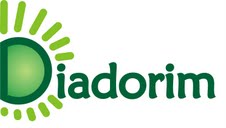A PHENOMENOLOGICAL INTERNAL VARIABLE MODELING OF HIGH-STRAIN-RATE COLD DEFORMATION OF FCC METALS
DOI:
https://doi.org/10.26512/ripe.v2i33.14416Abstract
Abstract. In this work a macroscopic viscoplastic model, accounting for strain, strain rate hardening and instantaneous rate sensitivity of FCC metals, is formulated. Within the present approach, a single phenomenological internal variable representing an effective microstructural feature is introduced. In a phenomenological way, this internal variable is related to hardening mechanisms associated with large strain processes. Aiming at applying the constitutive proposal in solving engineering problems, associated numerical formulation is also described. Reasoning on the numerical context, an exponential implicit integration scheme is adopted together with an elastic predictor-plastic corrector algorithm. Constitutive capabilities are assessed by solving simple numerical problems involving high-strain-rate deformation. Simulation results and comparisons with experimental data available in the literature, considering an annealed high purity copper, demonstrate the model aptitude in predicting strain rate history effects on material response. In general, proposed model proves to be a useful modeling alternative to describe the macroscopic behavior of FCC metals subjected to high-strain-rate cold deformation.
Keywords: High strain rate effects, Finite strains, Viscoplasticity, Numerical algorithms
Downloads
Downloads
Published
How to Cite
Issue
Section
License
Given the public access policy of the journal, the use of the published texts is free, with the obligation of recognizing the original authorship and the first publication in this journal. The authors of the published contributions are entirely and exclusively responsible for their contents.
1. The authors authorize the publication of the article in this journal.
2. The authors guarantee that the contribution is original, and take full responsibility for its content in case of impugnation by third parties.
3. The authors guarantee that the contribution is not under evaluation in another journal.
4. The authors keep the copyright and convey to the journal the right of first publication, the work being licensed under a Creative Commons Attribution License-BY.
5. The authors are allowed and stimulated to publicize and distribute their work on-line after the publication in the journal.
6. The authors of the approved works authorize the journal to distribute their content, after publication, for reproduction in content indexes, virtual libraries and similars.
7. The editors reserve the right to make adjustments to the text and to adequate the article to the editorial rules of the journal.









